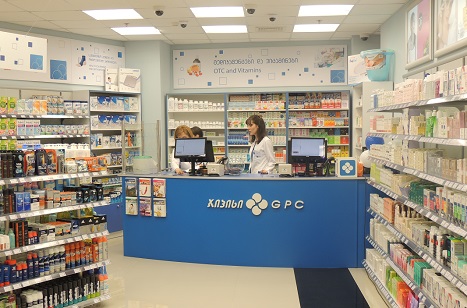Restriction lifted for 772 prescription-only medicines

A recently imposed restriction on medicines in Georgia will be lifted for more than 750 medicines.
As of September 1, restrictions were placed on about 6,000 medicines meaning they were only available with a doctors’ prescription. However today, Georgia’s Ministry of Health announced it would lift this ban on 772 medicines.
At a special media briefing, Health Minister David Sergeenko announced 772 medications were added to the group of drugs sold that would be sold in pharmacies without a prescription.
Sergeenko noted this was the fifth time the list of approved drugs had been changed. Currently 4,138 medications were sold without prescription and this would increase to 4,888 on Monday when the rule change was implemented.
"The majority [of prescription-free medicines] are for external use, such as ointments, however there are some anti-inflammatory and painkilling injectable medicines as well as one kind of an injectable steroid – prednisolone [available],” he said.
The Health Minister said two short-acting injection medicines used to reduce blood pressure – Papaverine – and Dibazol – were also added to the approved list, as well as two injection drugs for diabetes management.
Sergeenko said the Ministry was advised to enlarge the list by the national Association of Pharmacists.
"Consultations will continue and the changes are not final,” Sergeenko said.
Newly classified drugs available in Georgia without a prescription:
- Antimicrobial, anti-inflammatory agents of local dermatological use;
- Antiviral medication;
- Medications for ophthalmic diseases, ear drops;
- Immuno-modulators;
- Antifungal agents;
- Vitamins (injectable drug forms)
- Drugs that influence metabolic processes;
- Non-steroidal anti-inflammatory agents (injectable drug forms)
- Drugs for erectile dysfunction;
- Hepatoprotective agents;
- Antihelminthic and antiprotosoic drugs;
- Biogenic stimulants;
- Anti-bacterial anti-inflammatory drugs; and
- Electrolytic concentrates to encourage rehydration.
 Tweet
Tweet  Share
Share